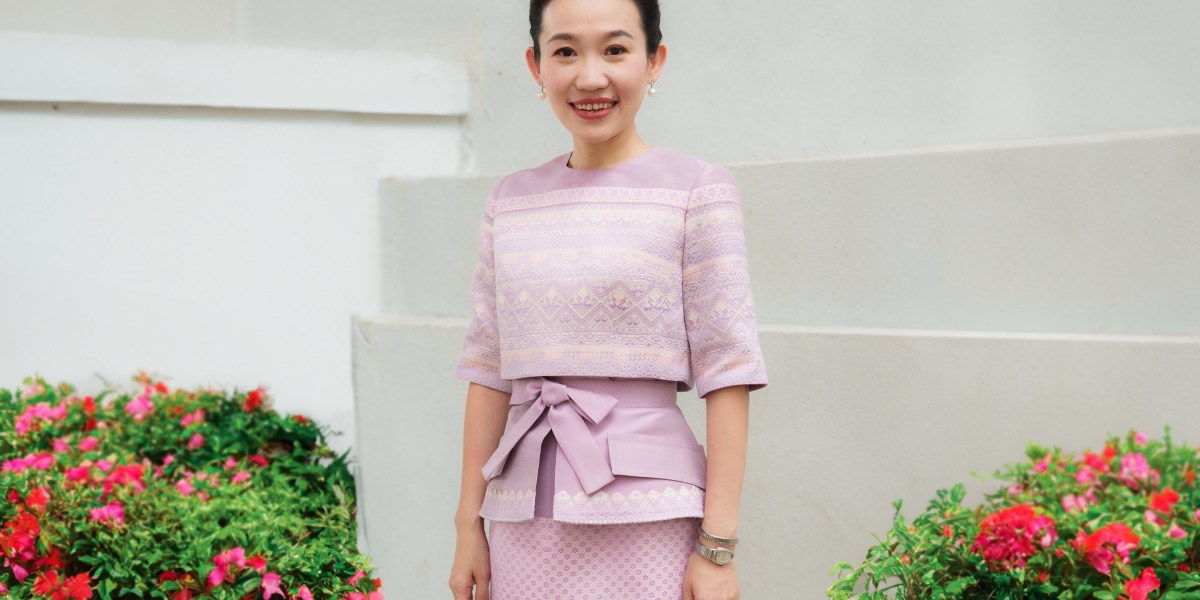Thailand only rolled out its surprisingly controversial cash handouts in late September, doling out 10,000 Thai baht ($303) handouts to eligible Thai citizens in a bid to revive the country’s flagging consumption.
Yet Thapanee Techajareonvikul, CEO of Thai retail conglomerate Berli Jucker, is already seeing the effects of the cash handout. “September was a very good month for us,” she says, nothing that the cash handouts helped boost sales even if they were only disbursed in the last week of the month.
Thai officials said the first phase of the stimulus could boost growth by 0.35 percentage points.
However, some economists argued that the stimulus might only lead to a short-term boost as many recipients will prioritize paying off household debt instead of consumption. Thailand has one of the region’s highest levels of household debt, at 16.4 trillion Thai baht ($484 billion), equal to 90% of its GDP.
Thapanee expects a good October as well, but warns consumer confidence is still “very soft.”
Thais are “clearing up their personal debts, and they’re just buying one-time spending,” she says.
Who is Thapanee Techajareonvikul?
Thapanee Techajareonvikul, ranked No. 47 on this year’s Asia edition of Fortune’s Most Powerful Women ranking, took over Berli Jucker in June 2023. She’s the first female chief executive of the 142-year-old Thai company. Thapanee has held leadership positions at the company since 2003.
“I didn’t even think about [being Berli Jucker’s first female CEO] until I was in the position,” she says.
Thapanee replaced her husband, Aswin Techajareonvikul, as Berli Jucker’s CEO, who’d moved to take over Big C, a Berli Jucker-owned hypermarket. Big C is targeting international markets, and is planning a listing. (Thapanee suggests the IPO may come by the end of 2025).

Courtesy of Berli Jucker
She’s also the daughter of Charoen Sirivadhanabhakdi, one the country’s richest people. Through TCC Group, Charoen owns Berli Jucker, as well as ThaiBev, the producer of Chang Beer.
That gave Thapanee early experience with corporate management. “Getting so involved with the management team at the top level from a very young age—I think I was lucky,” she says.
How did Berli Jucker become part of her family empire?
Albert Jucker and Henry Sigg, two Swiss merchants, established the trading house that eventually became Berli Jucker in 1882. The company first engaged in rice milling, mining and shipping, then expanded to manufacturing, packaging and distribution after the Second World War. The company was one of the first to be listed on the Thai stock exchange in 1975.
When her father took a majority stake in Berli Jucker in 2001, Thapanee had just graduated from MIT and was preparing to enter Harvard. Yet she still played a role in the deal, ranging from factory visits and engaging with key partners to even “doing the flip charts,” she explains.

Courtesy of Berli Jucker
Berli Jucker’s revenue at the time of the acquisition was 11.2 billion baht ($334 million at today’s exchange rates). In 2023, the company’s revenue grew to $4.8 billion, putting it at No. 79 on Fortune’s inaugural Southeast Asia 500 ranking, which tracks the largest companies in Southeast Asia by revenue.
Thapanee as Berli Jucker’s CEO
Since taking the top position at the company last year, Thapanee has focused on building up relationships with Thailand’s mom-and-pop stores through the company’s “Donjai” program.
The program provides funds for small stores for projects ranging from using Berli Jucker’s software to a full renovation of the store. Shop-owners then pay fees back to Berli Jucker depending on the level of investment; at higher levels of investment, shops have an understanding to source goods from Big C, the Berli Jucker-owned hypermarket.
Berli Jucker gets another benefit: Consumer data on last-mile and last-minute purchases, something Thapanee says she’s sought for a long time.
Thapanee says she’s also trying to entrench female empowerment at the Thai conglomerate. Sixty percent of Berli Jucker’s 55,000 employees are women, and the Thai conglomerate’s management team also has the same number of men and women.
She credits her late mother Khunying Wanna Sirivadhanabhakdi for normalizing women in positions of power in the family’s businesses. Thapanee describes her parents as a duo: Her father “drives business forward,” while her mother is the “risk control baseline.” Khunying Wanna was vice chairman and executive vice president at Berli Jucker, and also vice chairwoman at ThaiBev.
“On diversity, we are very open,” she says of Thai society.
The World Economic Forum recently ranked Thailand in 21st place out of 146 countries for female participation in the economy, ahead of wealthier economies like France and Japan. (Thailand ranked 65th in the WEF’s overall Gender Gap Index). Yet diversity among the workforce has yet to translate to top management: Just under 20% of board directors at Thai companies are women, according to a recent Deloitte study. Just 12% of CEOs of Thai companies are women.
Still, Thailand compares well to the world average: Globally, 23% of board directors and 6% of CEOs are women.

